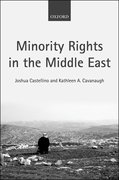By Kathleen Cavanaugh
Since 2003, Iraq has experienced significant political unrest and the emergence of ethno-religious divisions. A sectarian complexion to emerging socio-political movements in Iraq (religious, ethno-political) is not in question. The ‘fear of sectarianism’ has undoubtedly shaped and formed how protest movements in Iraq (and indeed regionally) are constituted. There is a rootedness in the identity politics of the region, a ready-made framework within which these divisions are articulated. One challenge in providing historical backdrops to still unfolding stories of state-crafting is that history itself remains a project, one in which there are competing claims to hegemonic discourse, the defining version of events which captures the social formation of a state (Castellino & Cavanaugh). It is in these ‘memories of state’ and state crafting that the politics of sectarianism in Iraq are rooted and ten years on from the invasion of Iraq, they continue to play out.
The tenth anniversary of the invasion of Iraq has attracted relatively little international attention or much needed reflection, yet its remnants are woven into a geography of violence that penetrates the legal, political, and social spheres in Iraq. Politically, Prime Minister Nouri al-Maliki has used the past seven years to consolidate his power. During his time in office, his strategic and micromanaging skills have served him well. He has deployed state resources to cement loyalty and outmanoeuvre political opposition, and has undermined newly created independent institutions and brought them under his direct control. Although he has indicated that he will not run for another term, much like Kurdish leader, Masoud Barzani, al-Maliki appears to be grooming his son for succession.
Yet there are cracks in al-Maliki’s power base and despite significant popular support in the polls, political challenges to his increasingly authoritarian rule and his Baghdad centred governance (and policies) are growing. In local elections held earlier this month, al-Maliki’s State of the Law List secured only 97 of 378 seats on the governorate councils, preventing him from forming key local governments. Two major Shi‛a rivals, the Islamic Supreme Council of Iraq (ISCI), led by Ammar Al-Hakim, and the Sadrist Trend of Muqtada Al-Sadr, secured 124 seats and went on to form local coalition governments in Baghdad and several other southern provinces after reaching agreements with Sunni lists and blocs representing a mix of secular and minority groups (which secured the remainder of the 378 seats). This shift in power at the local level suggests that al-Maliki’s regime is far from secure in the run up to the 2014 general elections.
Within the legal landscape, despite notions of equality and rights embedded in the 2005 Iraqi Constitution and its accession to the UN Convention Against Torture in 2011, serious human rights violations remain, including the arrest and detention of persons “for prolonged periods without being charged and without access to legal counsel [as well as] prisoner and detainee abuse and torture.” Although quite significant investment has been made by the EU (and UN) to train police in forensic evidence gathering, the Iraqi Judiciary are reluctant to accept anything other than confessional-based evidence, ensuring that the practice of torture and ill treatment in detention stays firmly rooted.
Since the United States withdrew in 2011, Iraqi civil society has endured crisis after crisis. Iraq’s economy and infrastructure especially in rural areas are weak and the prospect for economic prosperity is “subject to significant risks, deriving mainly from institutional and capacity constraints, oil prices volatility, delays in the development of oil infrastructure, and an extremely fragile political and security situation.” While the sectarian violence that followed the 2003 invasion of Iraq started to ebb in 2008, the internal (resource, security, political infighting) and external (Syria) pressures have led some commentators to openly fear a return to a full scale civil conflict in Iraq.
These forensics leave little question that ten years after the US invasion, what remains is not just a democratic deficit in Iraq, but a society and political system that is fractured and bruised. Change is necessary to prevent further (and deeper) conflict in Iraq. Who is best placed to build a political community that transcends the ethnically divided political map in Iraq? Al-Sadr appears to be the favoured contender, having reshaped his public profile from a military to political leader. Whatever leadership emerges in 2014, shedding historical hangovers and reimagining a political community that counter and undo the politics of sectarianism, in practice and discourse, will be a formidable task. Yet in this country ‘lost’ to war, these are critical first steps along the road to finding what Iraqi poet Dunya Mikhail calls ‘homeland’.
Kathleen Cavanaugh is currently a Lecturer of International Law in the Faculty of Law, Irish Centre for Human Rights (ICHR), National University of Ireland, Galway. She has recently co-authored Minority Rights in the Middle East with Joshua Castellino (OUP 2013). Read her previous blog post “Moralizing states: intervening in Syria.” The title of this post from I Was in a Hurry, by Dunya Mikhail, translated by Elizabeth Winslow, from The War Works Hard, copyright 1993, 1997, 2000, 2005 by Dunya Mikhail.
Oxford University Press is a leading publisher in Public International Law, including the Max Planck Encyclopedia of Public International Law, latest titles from thought leaders in the field, and a wide range of law journals and online products. We publish original works across key areas of study, from humanitarian to international economic to environmental law, developing outstanding resources to support students, scholars, and practitioners worldwide.
Subscribe to the OUPblog via email or RSS.
Subscribe to only law articles on the OUPblog via email or RSS.
Image credit: Cross by Caroline Jaine.



[…] Since 2003, Iraq has experienced significant political unrest and the emergence of ethno-religious divisions, writes Kathleen Cavanaugh of the National University of Ireland, Galway, over at OUPblog: […]